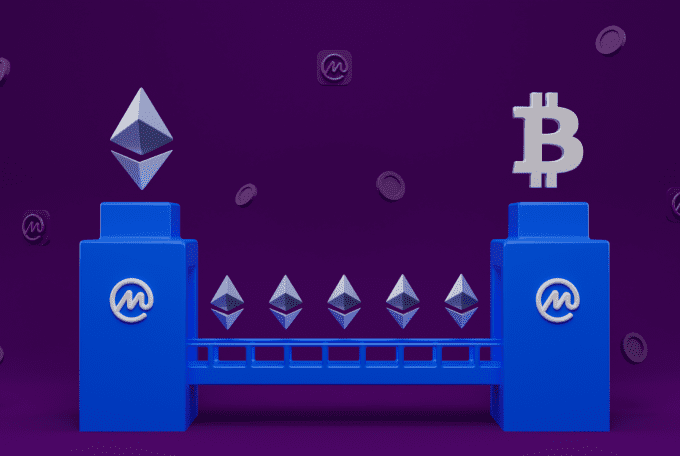Introduction
In the fast-evolving landscape of digital finance, cryptocurrencies have emerged as a revolutionary force, reshaping the way we perceive and utilize money. Amidst this transformative journey, the comparison between the trailblazing Bitcoin and its eclectic counterparts, known as altcoins, remains a topic of fervent discussion.
This article delves into the intriguing dynamics of these cryptocurrency types, shedding light on their unique attributes and helping you navigate through the crypto realm. So, if you are interested in crypto investment, you may consider knowing about the NEW FINANCIAL PLATFORM.
Cryptocurrency: A Glimpse into the Digital Frontier
In the ever-expanding realm of financial technology, cryptocurrencies have emerged as a disruptive force, redefining the way transactions and investments take place. At the forefront of this digital revolution stands Bitcoin, the pioneering cryptocurrency that laid the foundation for a decentralized monetary system.
With the advent of platforms which provide users with access to online trading opportunities, the world of digital assets has never been more accessible and intriguing.
What is Bitcoin?
Unraveling the Genesis of a Digital Pioneer
Bitcoin, the harbinger of the cryptocurrency era, made its debut in 2009, courtesy of an enigmatic figure or group known as Satoshi Nakamoto. Operating on a blockchain network, Bitcoin was designed as a decentralized digital currency, rendering it immune to governmental or financial institution control. This novel approach captivated the imagination of tech enthusiasts and financial minds alike, paving the way for a decentralized financial landscape.
What are Altcoins?
Beyond Bitcoin: The Blossoming of Alternative Coins
Altcoins, as the name suggests, are alternatives to Bitcoin that extend the possibilities of blockchain technology in various directions. With an ever-expanding roster, altcoins have given rise to a diverse array of digital assets, each bearing its own distinctive features and advantages.
Noteworthy members of the altcoin family include Ethereum, Litecoin, and Ripple, among many others. These altcoins aim to address perceived limitations of Bitcoin and explore innovative use cases, carving their niche within the cryptocurrency universe.
What are the Differences Between Bitcoin and Altcoins?
Deciphering the Distinctive Traits
While both Bitcoin and altcoins share the common ground of being cryptocurrencies, they exhibit significant differences in terms of market standing, technological innovation, and investment potential.
Bitcoin’s Dominance: Since its inception, Bitcoin has retained its status as the poster child of cryptocurrencies. With the largest market capitalization among all digital assets, Bitcoin boasts unparalleled recognition and acceptance. Its journey from obscurity to mainstream adoption has led to a level of stability that many investors find reassuring.
Altcoins: The Playground of Innovation: On the flip side, altcoins represent a playground of innovation and experimentation. Many altcoins introduce novel functionalities that push the boundaries of what blockchain technology can achieve.
From smart contracts on Ethereum to the fast transaction speeds of Ripple, these digital assets cater to a diverse range of applications beyond the scope of Bitcoin.
Volatility Spectrum: When it comes to volatility, Bitcoin generally exhibits a more stable trajectory compared to many altcoins. Altcoins, being newer and often subject to market sentiments and technological changes, can experience more pronounced price fluctuations. This higher volatility presents both risks and opportunities for investors seeking to ride the waves of change.
Investment Choices: Stability vs. Risk and Reward
Investors entering the cryptocurrency arena must consider their risk tolerance and investment objectives when choosing between Bitcoin and altcoins.
Bitcoin: A Safe Haven for Stability
For those seeking a safe haven in the unpredictable world of cryptocurrencies, Bitcoin remains an attractive option. Its time-tested nature and widespread recognition position it as a reliable store of value. If stability and security are paramount, Bitcoin could be the cornerstone of your digital investment portfolio.
Altcoins: Embracing Risk for Potential Rewards
On the other hand, if you are willing to embrace a higher level of risk in pursuit of potentially greater rewards, altcoins may hold significant appeal. The dynamic nature of altcoins, coupled with their capacity to introduce groundbreaking innovations, makes them a prime choice for risk-tolerant investors seeking to seize opportunities on platforms.
Which Cryptocurrency is Right for You?
The Pathway to Personalized Investment
The decision between Bitcoin and altcoins hinges on individual preferences, risk tolerance, and investment goals.
Assessing Your Objectives: If you value stability and are looking for a cryptocurrency with a track record of resilience, Bitcoin might align well with your investment goals. Its established reputation and robust market presence make it a reliable choice.
Chasing Innovations: Conversely, if you are drawn to the allure of technological advancements and novel use cases, altcoins present an avenue for exploration. By investing in altcoins, you become a part of the evolution of blockchain technology and its myriad applications.
Conclusion
In the multifaceted realm of cryptocurrencies, the contrast between Bitcoin and altcoins underscores the diversity of options available to modern investors.
While Bitcoin stands as the founding pillar of the crypto universe, altcoins offer a realm of unexplored potential, often synonymous with innovation and risk.
Choosing the right cryptocurrency for your investment strategy requires a deep understanding of your risk tolerance and objectives.
Remember, as you embark on your cryptocurrency journey, thorough research and prudent decision-making will be your compass in this exhilarating financial frontier.





